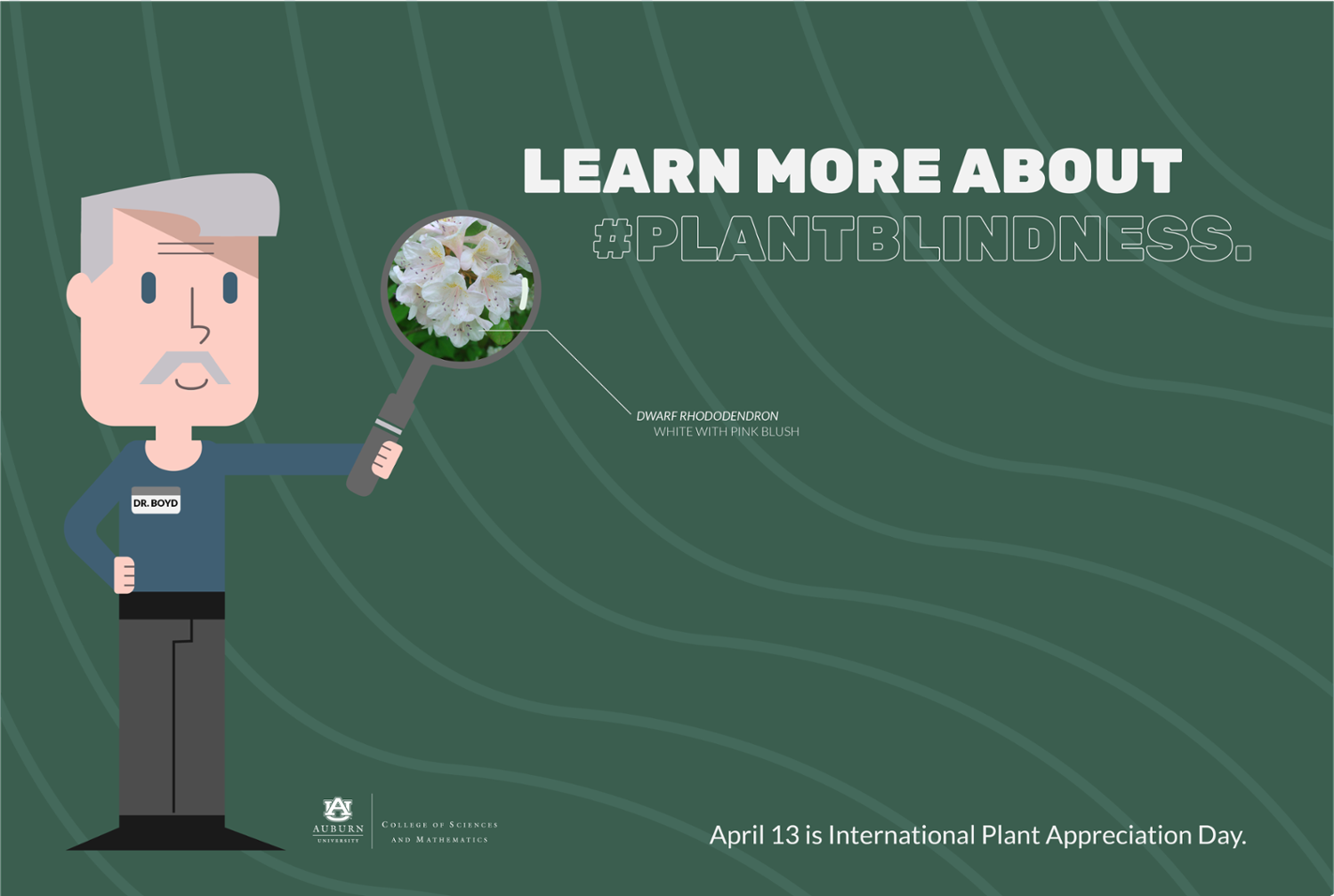Thank Your Plant Friends!
Help increase the awareness of the diversity and variety of plants all around us.
Plants, the green coating to most of our terrestrial areas, are a fascinating and vital component of our existence. Yet they can be a neglected component. International Plant Appreciation Day serves to remind us to be mindful of these organisms and grateful for the many things they provide us (food, shelter, oxygen, beauty, etc.). However, as a botanist who has taught Auburn’s Plant Ecology course for more than 30 years, it reminds me of an affliction from which many of my students have suffered: Plant Blindness!
Scientists and educators have written about Plant Blindness for decades, yet many people (other than my students) are unaware of it. Basically, Plant Blindness is a general lack of awareness of the diversity and variety of plants that surround us. People may recognize that plants can be divided into categories (such as tree, shrub, vegetable, salad, grass, etc.) but beyond that pay little attention to plants as particular species of living things. We often have little understanding of the words needed to describe plants and differentiate one species from another. Worse, some people have little interest in learning about them, considering plants to be simply the green stage on which life plays out and neither very interesting or worthy of interest.
To some extent Plant Blindness stems (pun intended) from our early education, in which toddlers may read books about specific animal species (bears, lions, whales, sharks, etc.) and may visit zoos to see exotic creatures but do not get similar exposure to specific plant species. For example, by the time she was three-years old my eldest granddaughter had a terrific collection of plush animal species (and could name them all, including the tarsier and the giant marine isopod) but I have been unable to find a source of plush plant species! Part of this stems from plants being very different organisms from us: we are vertebrate animals and so are mobile, have physical features we share with most other vertebrates (eyes, ears, limbs, etc.), and have behaviors that are observable in a short period of time. So it’s easy for us to project human features and qualities onto animals and we can identify with them much more easily. Plants on the other hand are relatively immobile (although pollen and seeds can move for miles), have bodies that are built very differently from animals (and so require different terms to describe them), and behave on a much slower timescale (think of a plant placed next to a window: after several days most of the leaves will face the window).
In my Plant Ecology class, most students (about 90 percent) are Wildlife majors. These students have generally chosen that major precisely because they are interested in vertebrate animals, but they are required to take some plant classes because plants are such vital components of animal habitat. So I view the class as a chance to cure some Plant Blindness, telling the students that they will be making some “Plant Friends” and learning to recognize a couple hundred species during the course of the semester. Many of these students respond well to my efforts, and in some cases have become so cured that after the class they have continued to contact me with questions about other plants they may come across. Some even join the campaign to cure Plant Blindness in others, trying to pass their newfound knowledge to friends and family (sometimes with mixed results)
But there are more important consequences of Plant Blindness. Many plant species worldwide are faced with extinction, due to many factors including habitat destruction and climate change. The U.S. Federal Endangered Species List contains more plant species than animal species, but most money (as much as 95 percent) is spent to protect animals (especially the vertebrate animals with which we are most familiar). In recognition of International Plant Appreciation Day, I hope we will all take a little time to take a close look at the plants that surround us and give thanks for the many ways that they enrich our lives. And I hope we will all keep in mind that some of our Plant Friends are in danger of disappearing and so need our help if we are to continue to share the planet with them.
Latest Headlines
-
02/12/2025
-
02/11/2025
-
02/10/2025
-
01/30/2025
-
12/03/2024

